Women are all heart - loving, caring and giving, but who takes care of her beautiful 'heart'? In my 25 years of clinical experience, I have seen women - educated professionals and housewives - accompanying men for their checkups, but when I question them about their health status, they have no clue. Their health ranks the lowest in priority on their to-do list.
Heart health is as important an issue for women as it is for men. A disturbing fact highlighted by the Indian Heart Association states that women are less likely to get themselves checked, or follow any preventive measures or health plan. Dr. Atul Mathur, Director Interventional Cardiology of Fortis Escorts Hospital says, "The myth was that women are protected from heart disease. However, today, women in India are rubbing shoulders with men in terms of heart disease incidences, and more so in the urban population. The main reasons for this increased prevalence are added work stress, lack of adequate physical exercise, consumption of junk food, and a rise in smoking habit. On the bright side, as diagnostic facilities are getting better, more women are coming forward for health screening."
Heart diseases in women result in various symptoms. Chest pain is one major symptom of a heart attack, and in addition, women may experience shortness of breath, pressure or pain in the lower chest or upper abdomen, dizziness, lightheadedness or fainting feeling, upper back pressure or extreme fatigue.
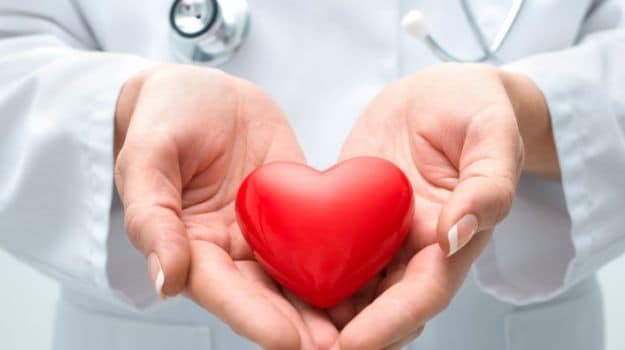
International Women's Day 2019
The Risk Factors
The risk factors for heart disease as listed by the Indian Heart Association are:
- High LDL cholesterol, low HDL cholesterol
- Diabetes
- Family history of heart disease
- Hypertension (BP)
- Lack of physical activity
- Tobacco smoking
- Metabolic syndrome (high lipids, abdominal obesity, diabetes, high blood pressure) in particular is a stronger predictor for heart disease in South Asian women than their male counterparts.
- Elevated lipoprotein and C-reactive protein (CRP) are important in women. They are not a risk factor, but a diagnostic measure.
Eat Right for Your Heart
A healthy eating pattern and an active lifestyle are corner stones for a healthy heart. Healthy eating is not about limiting your choices but choosing the best. Here are some tips -
1. Fruits and Vegetables
Five servings of fruits and vegetables a day provide fiber, vitamins and minerals needed by the body. They are low in calories and contain a lot of heart protective substances. Fill up half your plate with vegetables. Eat fruits as snacks, they will keep you energised and away from high calorie-no nutrients snacks. Choose colours - red, purple, green, white, yellow, blue - they are loaded with antioxidants.
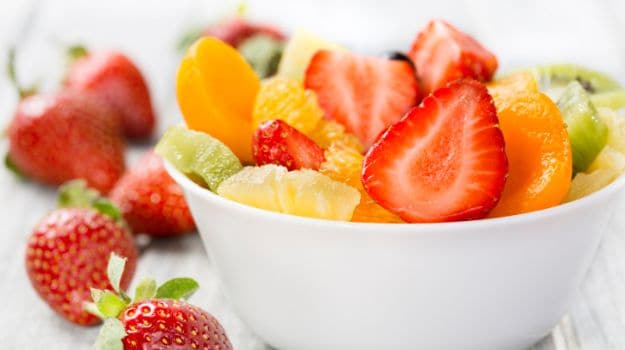
International Women's Day 2019: Eat fruits as snacks; they will keep you energised throughout the day.
2. Whole Grains
Whole grains are excellent sources of fiber and other nutrients that provide protection to the heart. Have at least three servings of whole grains in a day. Include whole-grain attaand multi-grain breakfast cereals which provide at least 3-5 gm fiber/serving. Be adventurous, substitute refined cereals with these healthy whole grains: barley, oats, quinoa and buckwheat.
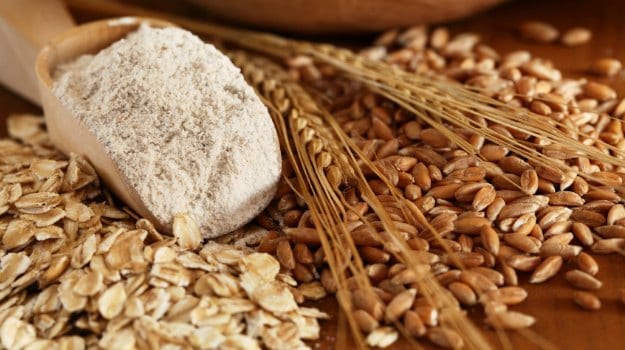
International Women's Day 2019: Whole grains are excellent source of fibre and other nutrients.
3. Good Fat Bad Fat
Poly unsaturated fats and mono unsaturated fats are the good guys. Derived from plants and seafood, they promote heart health. Choose healthy cooking oils like olive and peanut oil. Add some mustard oil during the day. Snack on a handful of nuts and include fish at least twice a week for your dose of omega-3 oils. Limit the intake of oil to 25% of the total calorific intake. Saturated fats, mostly present in animal foods like meat, dairy butter, etc are the bad fellows. Excessive intake of saturated fats can lead to elevated LDL cholesterol levels. Choose low fat dairy products and lean meats. Keep the consumption of ghee to a minimum. Be careful about the Trans fats in bakery and ready-to-eat products. Read the labels.
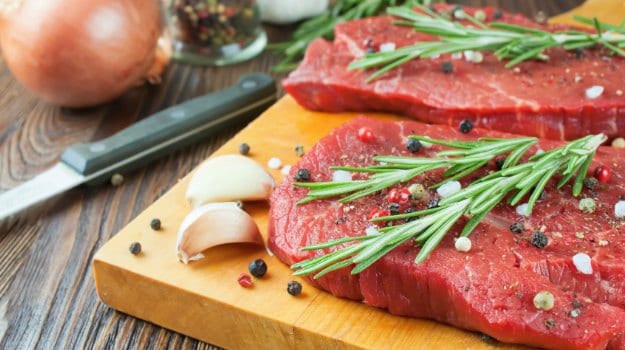
International Women's Day 2019:Saturated fats are mostly found in meat, dairy butter etc, which are bad for health.
4. Cholesterol
All of it isn't bad; in fact it is an important substance to keep our body healthy. 25% of the cholesterol in our body comes from the food we eat. All animal sources of food have cholesterol in them whereas all vegetarian sources are cholesterol free. Limit the intake of cholesterol to 200mg/day. Fiber from fruits, vegetables and whole dals all work to lower cholesterol. In women, the good cholesterol, HDL, tends to be higher because of the hormone estrogen. Thus, post menopause, when estrogen levels are lower, women are advised to be more vigilant about diet. Smoking, being overweight and leading a sedentary lifestyle have a negative effect on this.
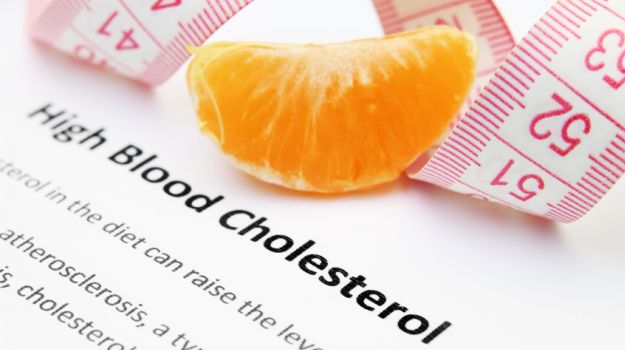
International Women's Day 2019: Limit the intake of cholesterol to 200mg/day.
5. Weight Watch
Keep your weight in check; crash diets are not sustainable or healthy. Eat three balanced meals daily and choose two multi-nutrient snacks like fruits and nuts. Avoid empty calories like sugar loaded treats and binge occasionally.
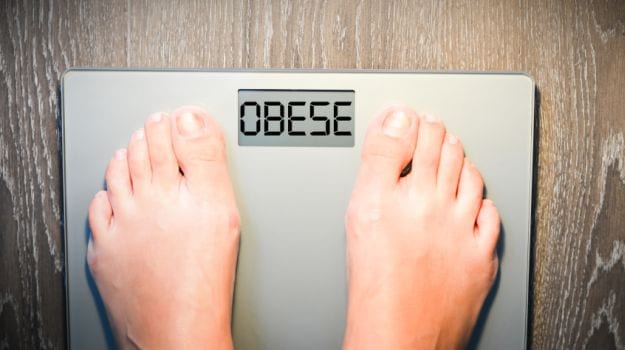
International Women's Day 2019: Avoid empty calories and binge occasionally.
6. Get Active
150 minutes of aerobic exercise in a week, including two days of strengthening exercises, is all that you need to keep your heart healthy. Daily physical activity increases your length and quality of life. If you get at least 30 minutes of moderate physical activity each day (like brisk walking), five times per week, you can almost guarantee yourself a healthier and more satisfying life while lowering your risks for heart disease, stroke and diabetes.

International Women's Day 2019: Daily physical activities increase length and quality of life.
7. Check Up!
Go for periodic checkups to know your heart health status. It is important to monitor blood sugar and blood pressure levels as well.
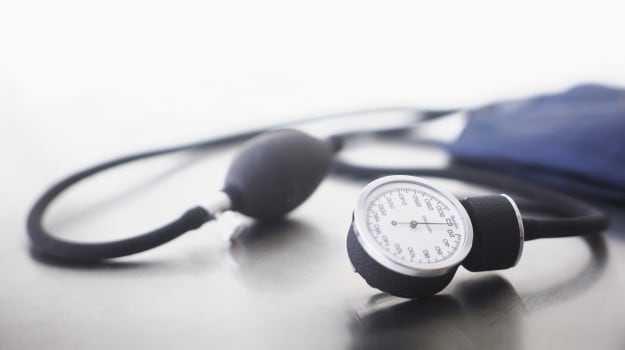
International Women's Day 2019: Get your full body check-up in every six months.
Women are the fulcrum of our families; their well-being have a direct effect on the happiness of the entire family. Prevention is the best medicine, so start today. Eat, exercise, sleep, and be happy.
So simple. Take care. Happy International Women's Day 2019!
About Rupali DattaRupali Datta is a Clinical Nutritionist and has worked in leading corporate hospitals. She has created and lead teams of professionals to deliver clinical solutions for patients across all medical specialties including critical care. She is a member of the Indian Dietetic Association and Indian Association of Parenteral and Enteral Nutrition.








